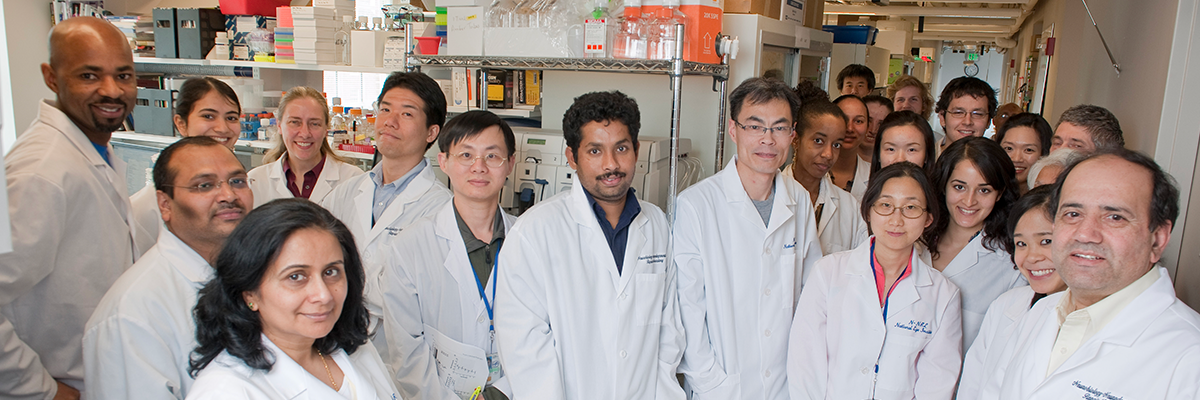Our Commitment to Diversity and Inclusion

At the NIH, diversity is our lifeblood. To maintain our relevance as the nation’s premier biomedical research enterprise, the NIH Office of Intramural Research (OIR) incorporates inclusive excellence into all its policies, practices, procedures, and operations. Our goal is to cultivate a workforce that better reflects the diversity of the U.S. population itself in order to most efficiently pursue the NIH mission of enhancing health, lengthening life, and reducing illness and disability.
How do you define inclusive excellence? For the OIR, inclusive excellence means:
- Creating and fostering an environment in which all talented individuals are allowed to contribute;
- Defining what it means to be qualified in such a way that all persons with potential value to the mission are given full consideration for opportunities;
- Leaving no stone unturned to identify individuals and communities who can contribute to the mission; and
- Considering who has the potential to make the greatest long-term contribution to the NIH mission, rather than only focusing on projected short-term productivity.
The following represents the OIR’s contribution to diversity and inclusion. For a more complete perspective, see the NIH Scientific Workforce Diversity Office at https://diversity.nih.gov.
Recruitment and Retention at All Levels
- High School Scientific Training & Enrichment Program (HiSTEP) – Expands the pipeline of students interested in biomedical and healthcare careers by providing opportunities for high school students from schools with a large population of financially-disadvantaged students.
- Community College Summer Enrichment Program – Increases the number of community college students who transfer to four-year colleges and universities and consider careers in the biomedical sciences.
- Undergraduate Scholarship Program (UGSP) – Offers competitive scholarships to students from disadvantaged backgrounds who are committed to careers in biomedical, behavioral, and social science health-related research.
- Postbaccalaureate Intramural Research Training Award (Postbac IRTA/CRTA) – Provides recent college graduates who are planning to apply to graduate or professional school an opportunity to spend one or two years performing full-time research at the NIH.
- Medical Research Scholars Program (MRSP) – Engages medical, dental, and veterinary students in a year-long residential research immersion program, offering a curriculum rich in didactics and professional development, and featuring a robust mentorship and advising program.
- NIH Loan Repayment Programs (LRPs) – Designed to recruit and retain highly qualified health professionals into biomedical or biobehavioral research careers by repaying up to $50,000 annually of a researcher’s qualified educational debt in return for a commitment to engage in NIH mission-relevant research
- NIH Distinguished Scholars Program (DSP) – Aims to build a more inclusive community within the NIH Intramural Research Program by reducing the barriers to the recruitment and success of principal investigators from groups underrepresented in biomedical research.
- Diverse Cohorts – Trans-NIH recruitment efforts designed to attract the world’s brightest scientific talent from a broad pool of applicants, including:
Inclusive Research Portfolio: A Diversity of Knowledge
- NIH Academy – Offers trainees the opportunity to learn about health disparities, enhance their knowledge of gaps in health outcomes, and investigate what is being done to address health disparity issues.
- NIH Scientific Focus Areas (SFA) – Health Disparities and Social & Behavior Sciences among 22 focus areas.
- Wednesday Afternoon Lecture Series – The highest-profile lecture series at the NIH, featuring a diverse set of national and international speakers.
- Scientific Interest Groups – More than 100 groups of scientists with common research interests, including:
- Global Health Interest Group
- Health Disparities Interest Group
- Hispanic Health Research Scientific Interest Group
- Rural Health Interest Group
- Sex and Gender In Health and Disease
- Sexual and Gender Minority Health Scientific Interest Group
- Special Populations Research Forum
- Stigma Scientific Interest Group
- Women’s Health Special Interest Group
Advisory Groups: Valued Partners
- NIH Equity Committee (NEC) – Established in 2017; aims at institutional transformation and culture change.
- Women Scientists Advisors (WSA) – Established in 1993; raises awareness of issues facing women scientists and to work towards improving women’s representation in the NIH faculty at all levels.
Affinity Groups: See Yourself Here
- Fellows of All Abilities (FAAb)
- Lesbian, Gay, Bisexual, Transgender-Fellows and Friends (LGBT-FF)
- Mom-Dad-Docs
- Network of African-American Fellows at the NIH (NAAF)
- NIH Black Scientists and Friends Network
- NIH-SACNAS (Society for the Advancement of Chicanos/Hispanics and Native Americans in Science)
- Single Parents Support Group
- Veteran and Active-Duty Members of the U.S. Military
- Women of Color Research Network
Resources and Training to Promote Diversity and Inclusion
- Diversity and Inclusion Series for NIH Trainees
- IRP Demographics
- ‘Keep the Thread’ Policy
- Moving From Bystander to Upstander: Take Action to Combat Harassment and Aggression
- Role of NIH Principal Investigator Search Committee Members
Selected Commentaries and Articles Relevant to Diversity, Equity, and Inclusion
- Creating a More Diverse and Inclusive NIH
- Equity and Diversity in the NIH Intramural Research Program
- NIH and Howard University Partnership
- NIH Distinguished Scholars Program
This page was last updated on Thursday, August 12, 2021